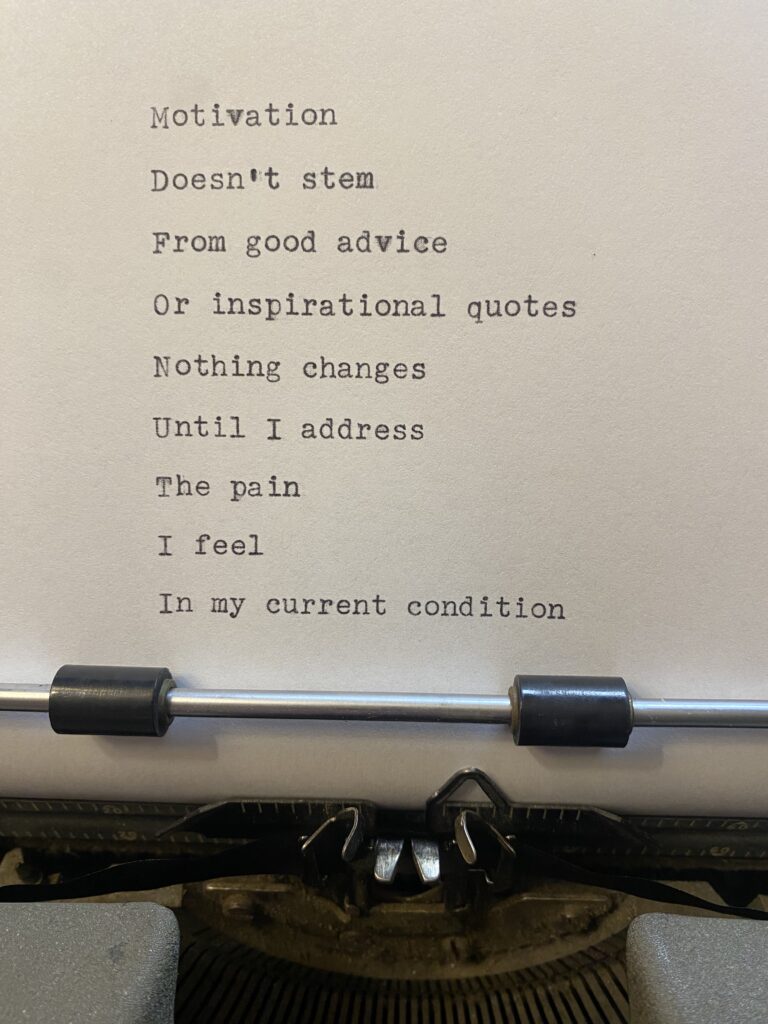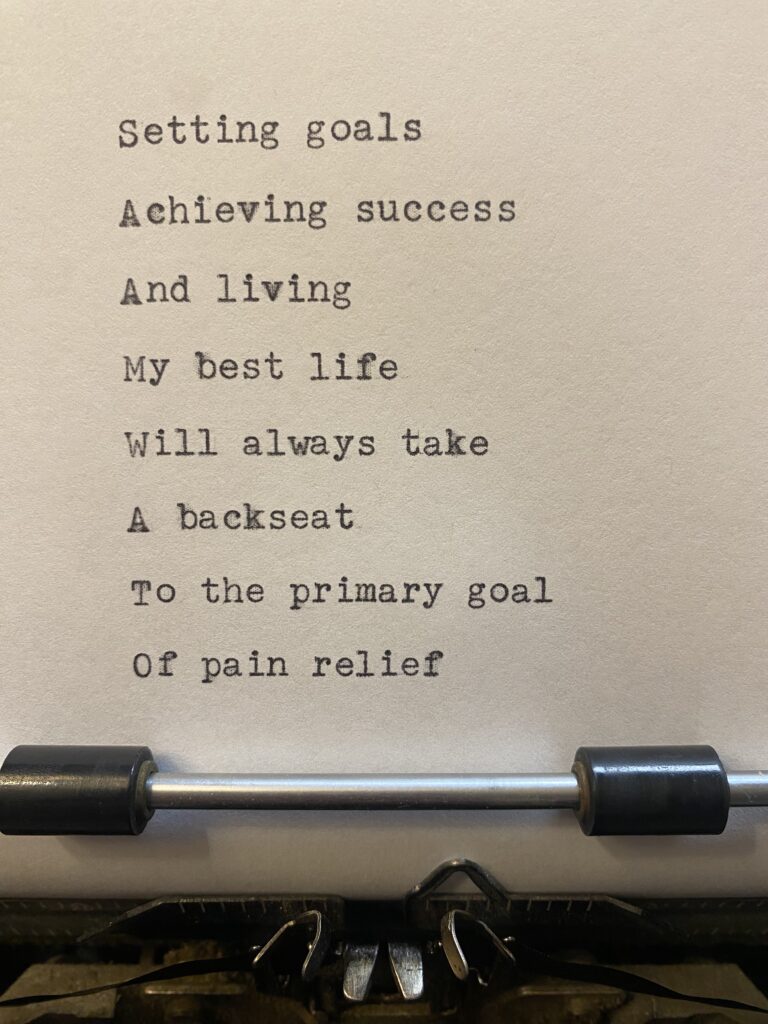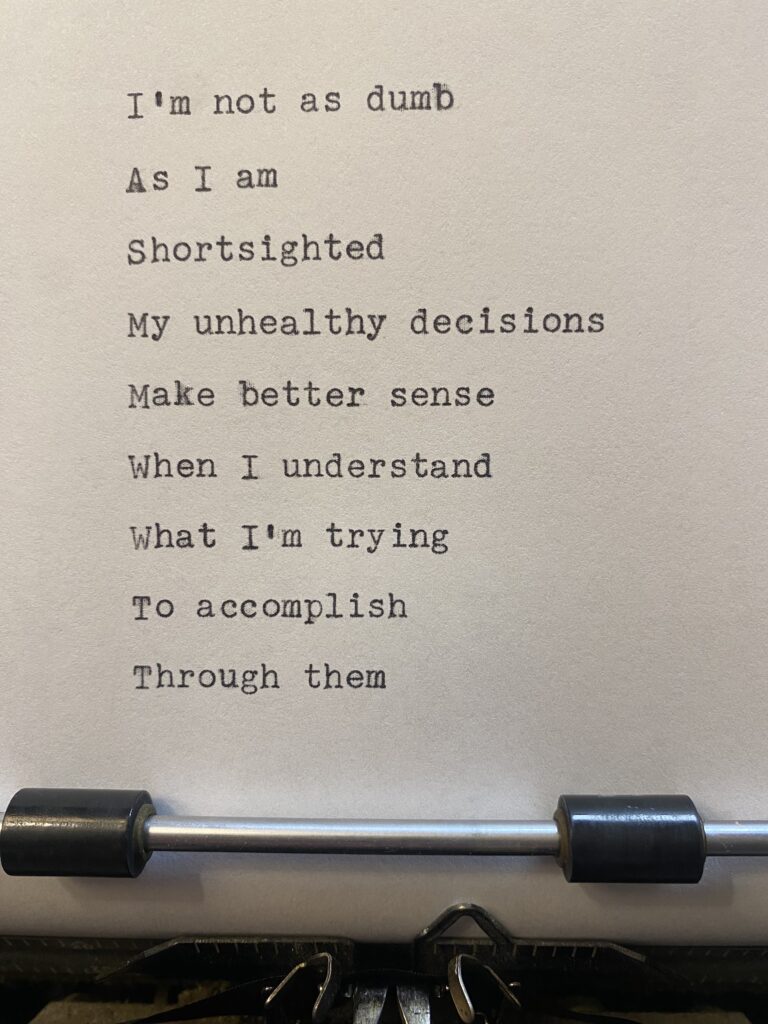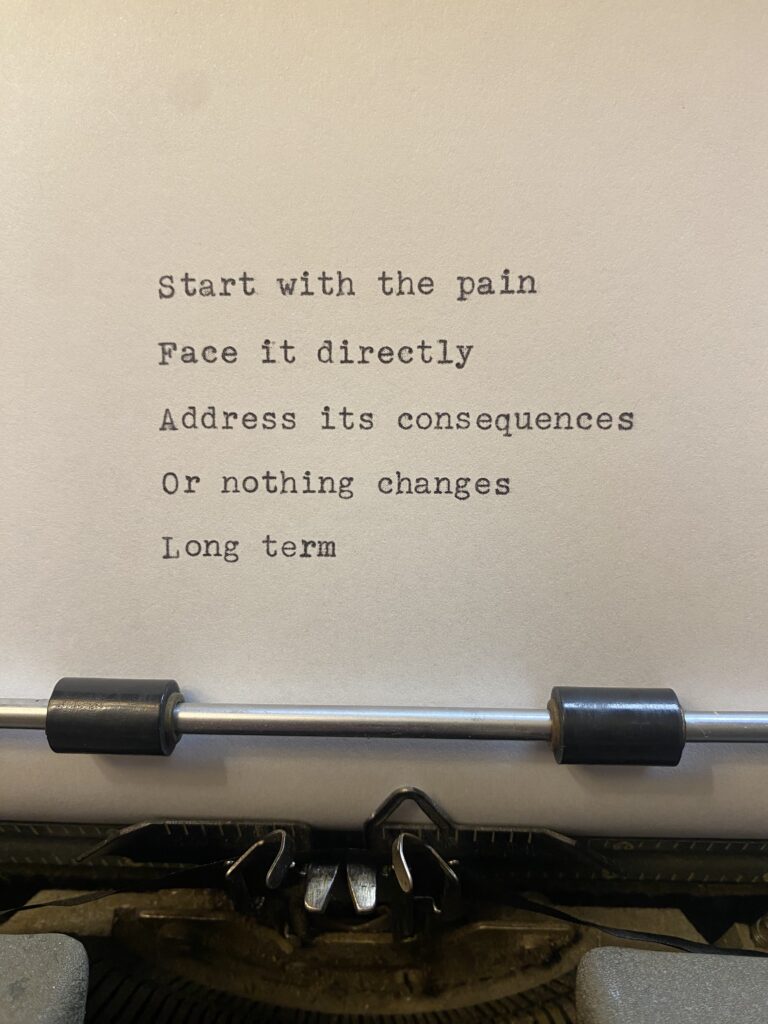
Social media has its myriad of ills, but to be fair, it also has a few cures. I can waste a lot of time scrolling through reels of beagles and ornery dogs, but occasionally I come across a tidbit of wisdom that makes me pause and pay a small receipt from my otherwise diminished attention span.
Am I better for it? Maybe. I don’t know. Who knows? Who’s counting?
I guess I could obsess over the data that is tracked about the minutiae that is provided to me in my statistics tab. But where does that lead? Am I better for knowing the average eyeball gaze at my latest typewriter post?
As a writer, I hope that my words will matter. I hope someone will find something I said meaningful, or better yet, lasting. But that is a metric I can’t change or control. I can’t tell you what to feel from my writing. I can’t make my words mean to you what I want them to mean. I can only choose to publish the words I have written or leave them be and never tap them out on the keys of my Remington Quiet-Writer.
Have you ever wondered why we share words and quotes we find inspirational? Ever wonder why they have a “share” button to click on every post? We read something that resonates and impulsively feel the need to click it? Or repost it for our followers to see?
Why do we do that?
I consume lots of content that is intended for self-education (a term I prefer over self-help). I have a few YouTube therapists that I check in with regularly. Their perspective is informative and it resonates, but does it do me any good?
So what makes a word like that effective? Am I just posting words that produce a warm feeling? If so, I’m ok with that, but I think what I really want is to be a part of producing change.
Even this morning, the algorithm gave me a recommendation of a video titled Three Things You Can Do Right Now To Change Your Life. Like Hank with the ball, I bit on it quickly to see what the author had to say, to see if it was a rehash of everything everyone else has to say.
I found his advice reasonable and resonating, but I couldn’t tell what I felt was missing from his presentation. So I sat with it and decided to write to see if I can put words to the feeling.
He even qualified his three points as being unique to other motivational speakers and that nobody else will tell you this advice.
Yet from my experience, I still felt there was something missing from his counsel.
I’ve been on an intentional road toward emotional health and restoration for a few years now. The collapse of my business was its impetus and continues through the other losses I’ve experienced since then. In this time, I’ve immersed myself in countless videos, messages, sermons, sound bytes, quotes, poems; you name it. All of it intended to help me become a better man. But none of it was as helpful as this unearthing that unfolded in front of me in 2020.

Nothing was ever going to improve until I addressed my pain.
2020 was the year I began work with a therapist that understands trauma and pain. LIke Haley Joel Osment said in Sixth Sense, “I see dead people,” she sees broken people. She saw things I couldn’t see in myself, and the chief of what she saw was the pain I was carrying of which I was not aware. This was when the lights went on and real change began to take place.
Until I confronted the pain I was unknowingly bearing, my goals were a moot point.
All the books. All the videos. All the journaling. They all finally started to come into focus as I no longer viewed them through the blurry spectacles of pain that obscured everything I saw.
My weight began to decrease as I connected the dots between how I ate and how I felt. My eating habits made perfect sense in light of the pain I was dealing with. I felt bad, therefore I ate to feel better. The numbers added up.
I’m a chef. I know food. I know how to cook. I know how to prepare a delicious meal.
Didn’t matter.

Goal setting didn’t matter. Dreams didn’t matter. Discipline didn’t matter. Aspirations didn’t matter.
The pain was all that mattered. And that pain was demanding to be soothed.
It was apocalyptic.
I like this word better than epiphany. Apocalypse is easily misunderstood. It’s usually applied to the end of days or the prediction of catastrophic events of the future. But its simplest definition is to reveal (literally, to pull the lid off). An apocalypse is a revelation, an uncovering of what is underneath.
And nothing survives an apocalypse and stays the same.


Kevin, this is powerful but let me ask you when someone faces their pain. How do you get through that? What enables you to gain the insight that you need from facing your pain and getting over your pain?
In my experience, there are no guarantees that someone will emerge on the other side as a better version of themselves. But I am certain that wholeness will not be realized without going through the valley of the shadow and facing the pain head on.